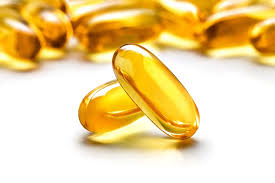Can Fish Oil Make Feces Stink, In the realm of health and wellness, dietary supplements often spark curiosity and controversy. Fish oil, known for its omega-3 fatty acids and potential health benefits, is a popular choice among health-conscious individuals. However, discussions about its effects sometimes lead to unexpected questions. One of these is whether fish oil can make feces stink.
Understanding Fish Oil and Its Benefits
Fish oil is derived from the tissues of oily fish like salmon, mackerel, and sardines. It is rich in omega-3 fatty acids, specifically eicosapentaenoic acid (EPA) and docosahexaenoic acid (DHA), which are known for their anti-inflammatory properties and numerous health benefits. These include supporting heart health, improving cognitive function, and reducing inflammation throughout the body.
The Digestive Journey: Fish Oil and Feces
To understand how fish oil might impact the odor of feces, it’s important to consider its digestion and absorption in the body. When consumed, fish oil undergoes breakdown in the digestive system, where the omega-3 fatty acids are absorbed into the bloodstream. Unused portions are eventually excreted as waste.
Addressing the Question: Does Fish Oil Make Feces Stink?
The short answer is yes, fish oil can potentially make feces smellier than usual. This effect is primarily due to the nature of omega-3 fatty acids themselves. These fatty acids have a tendency to undergo oxidation processes, which can produce compounds that contribute to stronger odors in excrement. Additionally, the body’s metabolism of fish oil and its byproducts can influence the scent of stools.
Factors Influencing Odor
Several factors can further influence how fish oil affects the smell of feces:
- Dosage: Higher doses of fish oil may lead to more pronounced changes in stool odor.
- Individual Differences: Each person’s metabolism and gut microbiota are unique, which can impact how fish oil is processed and subsequently affects fecal odor.
- Dietary Habits: The overall diet, including intake of other foods and supplements, can also play a role in fecal odor.
Conclusion: Balancing Health Benefits and Potential Side Effects
While the odor of feces might not be the most glamorous topic, it can provide insights into how our bodies process dietary supplements like fish oil. Despite the potential for stronger smelling stools, the health benefits of omega-3 fatty acids generally outweigh this minor inconvenience for many people.
As always, it’s important to consult with healthcare professionals before starting any new supplement regimen, especially if you have concerns about digestive issues or reactions to fish oil. By understanding how fish oil interacts with our bodies, we can make informed decisions to support our health and well-being effectively.
In summary, while fish oil can contribute to stronger smelling feces due to its omega-3 content, this should not overshadow its recognized health benefits. With moderation and awareness, incorporating fish oil into a balanced diet can be a positive step towards overall wellness.
You Might Also Like These:
Can Fish Oil Make Feces Stink? Exploring the Truth Behind Dietary Supplements
Can Feco Only Be Used With Other Oil? Debunking the Myths
Can Feco Oil Damage Your Liver?
Understanding the Benefits of Feco Oil: Your Guide to Making an Informed Purchase

